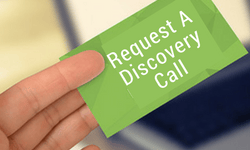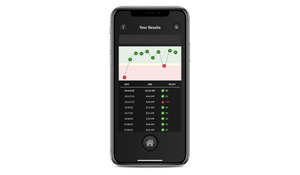Ever wake up so tired that your body feels like it's made of sand? Your brain is foggy, your eyes are heavy, and you'd give anything for another hour of sleep. Unfortunately, it's time to start the day. Time for caffeine, right? Yes and no.
While caffeine is great at improving your mood and alertness, it can also backfire. Too much caffeine at work can sabotage your sleep and make it harder to pay attention. In fact, how much caffeine you drink, how fast, and at what time of day can make a big difference.
Two out of three employees admit they've made mistakes because they were tired1.
When employees are tired, caffeine is by far the most popular countermeasure, and energy drinks at work are a popular source of caffeine. Of course, getting quality sleep is essential. But it's not always possible. Thus, it's important for employees to know how to use energy drinks at work strategically.
By strategizing caffeine intake, employees can maximize caffeine's benefits while minimizing its side-effects like sleep disruption, dehydration, and increased anxiety2.
So, if you or your workers utilize energy drinks and caffeine as a fatigue countermeasure at work, here are 3 smarter ways to go about it.
Don't Drink Energy Drinks at Work with More than 25 Grams of Sugar
Sugar can sap your energy and sabotage the energy boost of caffeine3. In fact, combinations of caffeine and sugar can make you more tired than caffeine or sugar alone4. For example, an energy drink with 80 milligrams of caffeine and 26 grams of sugar can reduce sleepiness during prolonged driving. However, much more sugar than that has been shown to negatively impact reaction time and counteract the performance improvements attributable to caffeine. So, be sure to check both the caffeine content and the sugar content of your favorite energy drink to ensure you're getting the maximum alertness boost with minimum side-effects.
Don't Drink Caffeine Immediately When You Wake Up
Certain ingredients in coffee, tea, and energy drinks can irritate an empty stomach. These ingredients include B-vitamins, carnitine, taurine, and chlorogenic acid5.
Furthermore, caffeine won't be as effective if you drink it within the first hour of waking up. This is because of a hormonal chain of reactions called the Cortisol Awakening Response which peaks cortisol levels 30-45 minutes after we wake up6. Cortisol is a stress hormone, and increasing cortisol is one of the ways caffeine makes us feel alert. However, drinking caffeine during this Cortisol Awakening Response reaction is like yelling at someone with noise-canceling headphones on. The effect is muted. In other words, it's a waste of caffeine because you won't feel its effects. It will feel a lot more impactful if you wait an hour or two before that first energy drink.
Find your Caffeine Sweet Spot
Sleep-deprived truck drivers performed better when they got smaller doses of caffeine7.
That's because performance improves with increasing stimulation - to a point. Past that point, performance suffers because you're overstimulated. This is called the "Yerkes-Dodson Law", and it applies to caffeine, too.
The key is to find the point of the curve where you're at peak performance without becoming overstimulated. This is your "Caffeine Sweet Spot", and it varies day-to-day because the stress you face changes day-to-day.
In order to find your "Caffeine Sweet Spot", nurse your caffeine and stop when you feel alert enough. This is the premise behind the "5 Levels of Fatigue", which suggests there is a recommended dose of caffeine for every level8.
Conclusion
It's important to remember that caffeine is not a replacement for quality sleep. There comes a point when no amount of caffeine can keep you awake. Your eyes may be open, but you'll be a walking zombie. Furthermore, there are types of fatigue that caffeine cannot cure. This is the mental exhaustion that indicates someone is struggling with burnout. To achieve both temporary alertness as well as mental and physical health, it's important to recognize such limits of caffeine. Give your body the rest, nutrition, and care it requires, and use caffeine only when required as a countermeasure to fatigue, not as a staple of your wakefulness.
To detect and manage employee fatigue in real-time, have your employees clock in with the AlertMeter® app.
REFERENCES
- More than sixty percent of U.S. workers admit to workplace mistakes due to tiredness. (2015, Jan. 13). PR Newswire. Retrieved from http://www.prnewswire.com/news-releases/more-than-sixty-percent-of-us-workers-admit-to-workplace-mistakes-due-to-tiredness-300019693.html
- Workplace Fatigue: Why Energy Drinks Make Fatigue Worse. (2017, Jun. 2). Predictive Safety. Retrieved from https://www.predictivesafety.com/blog/using-energy-drinks-to-fight-fatigue
- Mantantzis, K., Schlaghecken, F., Sünram-Lea, S. I., & Maylor, E. A. (2019). Sugar rush or sugar crash? A meta-analysis of carbohydrate effects on mood. Neuroscience and biobehavioral reviews, 101, 45–67. https://doi.org/10.1016/j.neubiorev.2019.03.016
- Bernard, B. N., Louise, L. C., & Louise, D. (2018). The Effects of Carbohydrates, in Isolation and Combined with Caffeine, on Cognitive Performance and Mood-Current Evidence and Future Directions. Nutrients, 10(2), 192. https://doi.org/10.3390/nu10020192
- Robertson Rath, D. (Host). (2020, Aug 10). HALT! 4 Times You Should NOT Have Caffeine and Why [Audio podcast episode]. In Caffeine at Midnight. Anchor. https://anchor.fm/caffeine-midnight/episodes/HALT--4-Times-You-Should-NOT-Have-Caffeine-and-Why-ehuib7
- Powell, D. J., & Schlotz, W. (2012). Daily life stress and the cortisol awakening response: testing the anticipation hypothesis. PloS one, 7(12), e52067. https://doi.org/10.1371/journal.pone.0052067
- McLellan, T. M., Caldwell, J. A., & Lieberman, H. R. (2016). A review of caffeine's effects on cognitive, physical and occupational performance. Neuroscience and biobehavioral reviews, 71, 294–312. https://doi.org/10.1016/j.neubiorev.2016.09.001
- Robertson Rath, D. (2020) How to Get Sh*t Done When You Feel Like Sh*t. GEG Research and Consulting.



